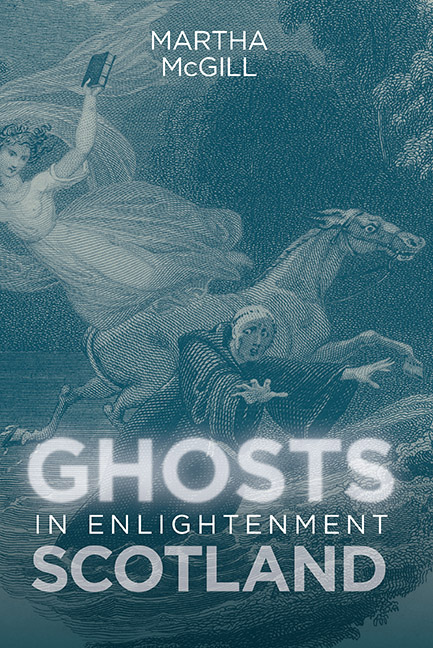Book contents
Chapter One - Medieval and Reformation Ghosts
Published online by Cambridge University Press: 12 October 2019
Summary
Most early modern Scots would have agreed that the world was imbued with spirits. However, the nature of these spirits was open to debate. Educated folk commonly erased ghosts from the celestial schema, instead identifying apparitions as angels or (more frequently) as demons. The main biblical justification for ghosts was the Old Testament story of the Witch of Endor (1 Samuel 28:3–25), which focused on the tribulations of King Saul of Israel and Judah. Saul had driven the magicians and mediums from his land, but while preparing to wage war against a host of Philistines, he became afraid. He repaired to a medium who had remained in Endor, and by his request, she raised the deceased prophet Samuel. The tidings were bleak. Saul learned that he was to lose the battle, and that he and his sons were to die – prophecies that were shortly fulfilled. The story suggested that ghosts might appear on earth, but it was not conclusive. The apparition of Samuel was tainted by the association with witchcraft and necromancy, and might be read as a devil in disguise. In the absence of clear biblical guidance, medieval theologians expressed varying views on the orthodoxy of ghosts. Scepticism became more pronounced with the sixteenth-century Protestant Reformation, when ghosts were widely identified as demons. Stories of ghosts circulated in sixteenthand seventeenth-century Scotland, but were often dogged with disclaimers.
Ghosts in the Middle Ages
There are few records of Scottish ghosts before the eighteenth century. The Europe-wide picture is better documented, however, and offers some contextualisation for the sparse Scottish sources. In early medieval Europe, most clerical figures rejected the idea that dead souls could return to earth. Ghost stories had been common in ancient Greek and Roman culture, and were tinged with paganism in the eyes of the early church fathers. Tertullian (c.160–c.230) and Lactantius (c.250–c.325) dismissed ghosts as a vulgar superstition. Augustine of Hippo (354–430) allowed only for the ‘image’ of a dead person to return, as opposed to an actual spirit or soul, and explained that this image was created by angels or demons.
- Type
- Chapter
- Information
- Ghosts in Enlightenment Scotland , pp. 17 - 48Publisher: Boydell & BrewerPrint publication year: 2018



